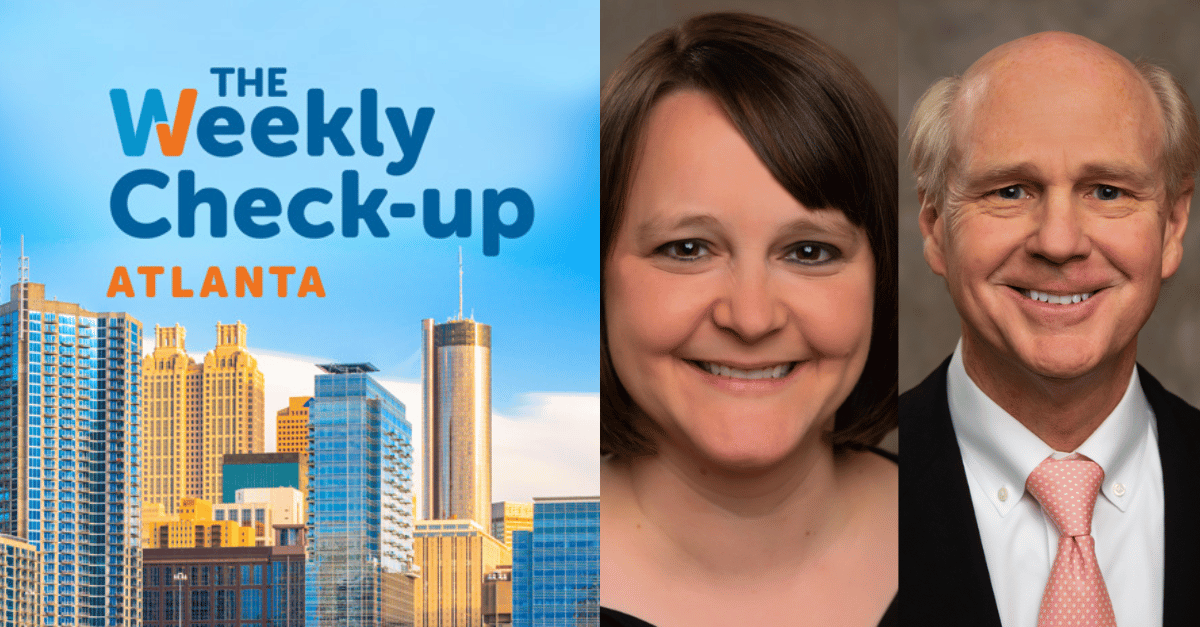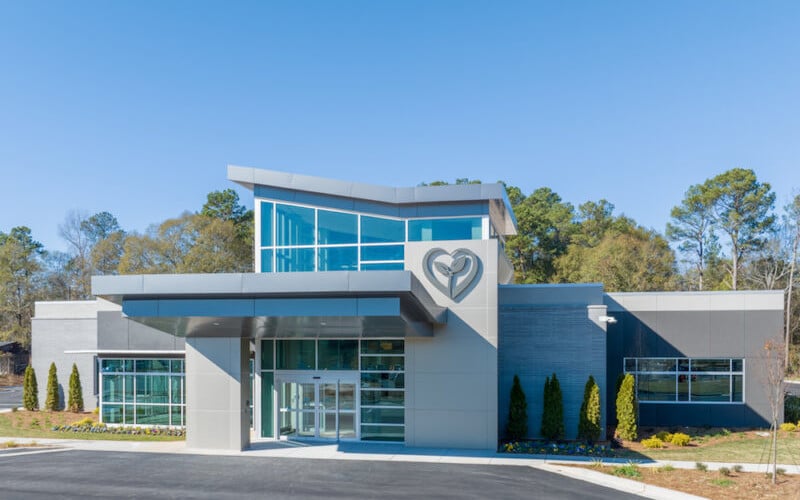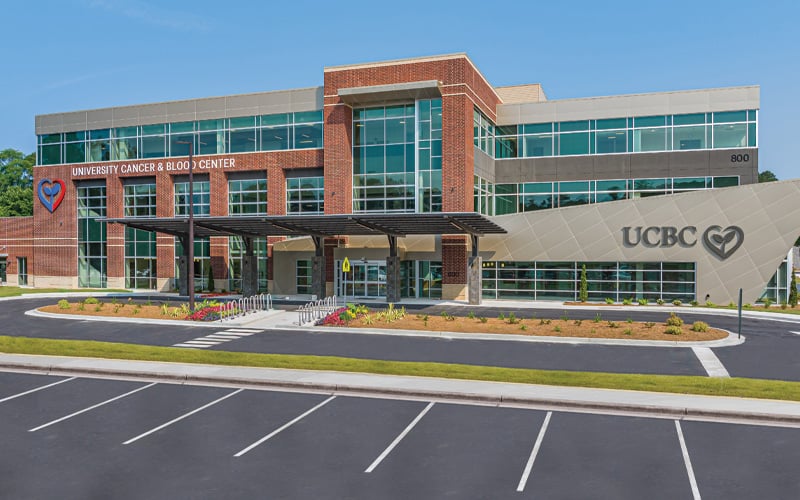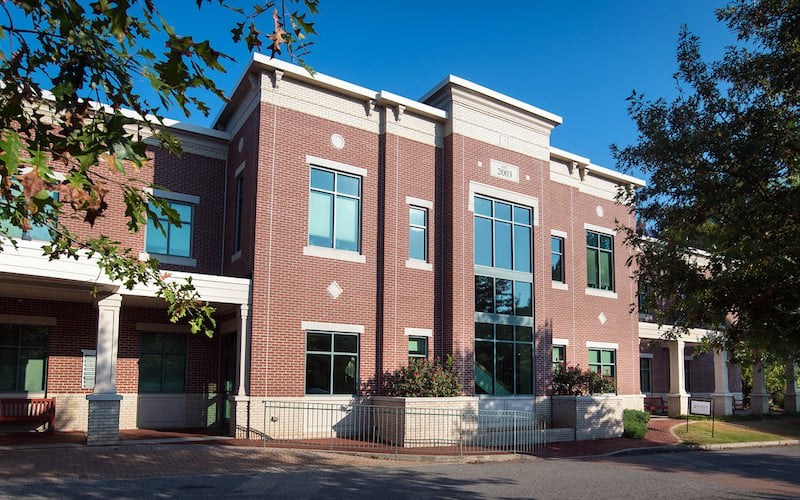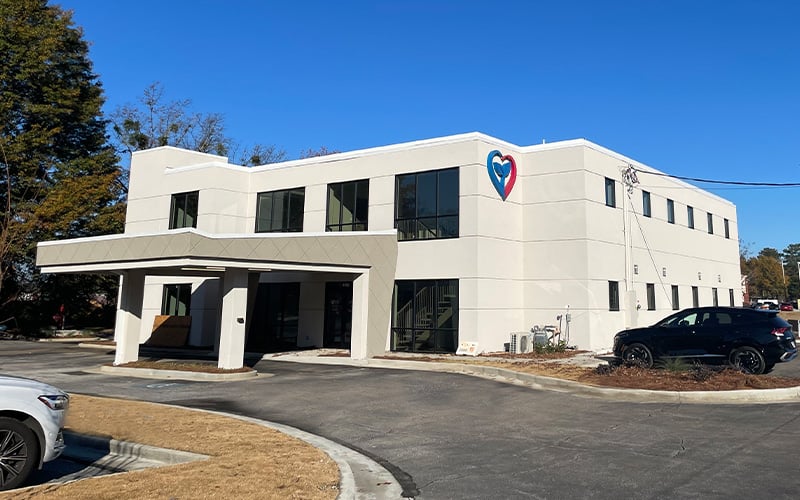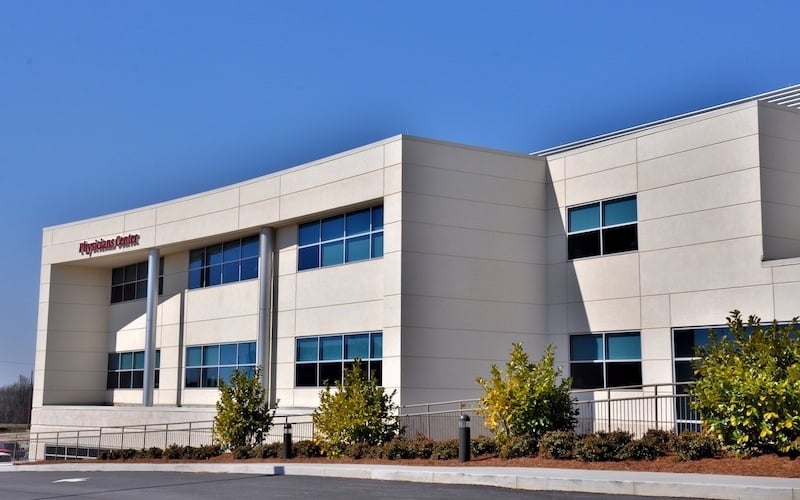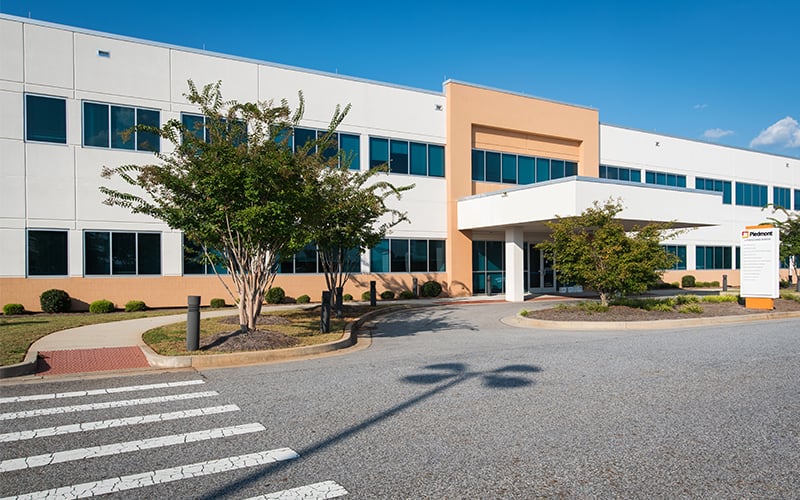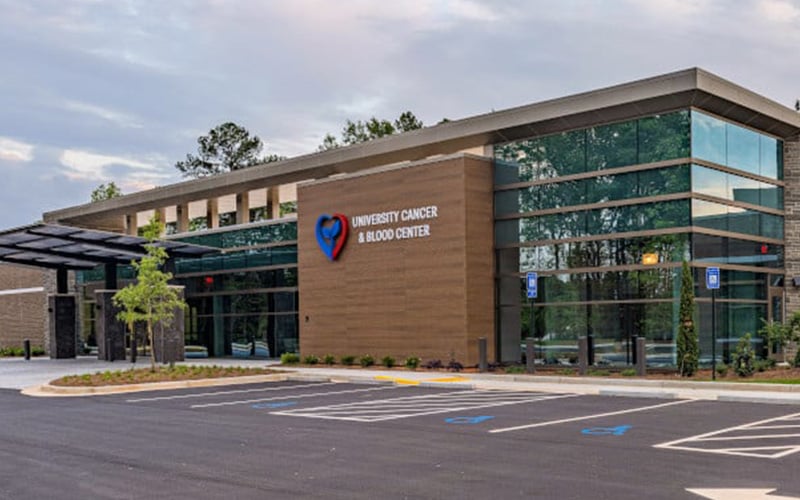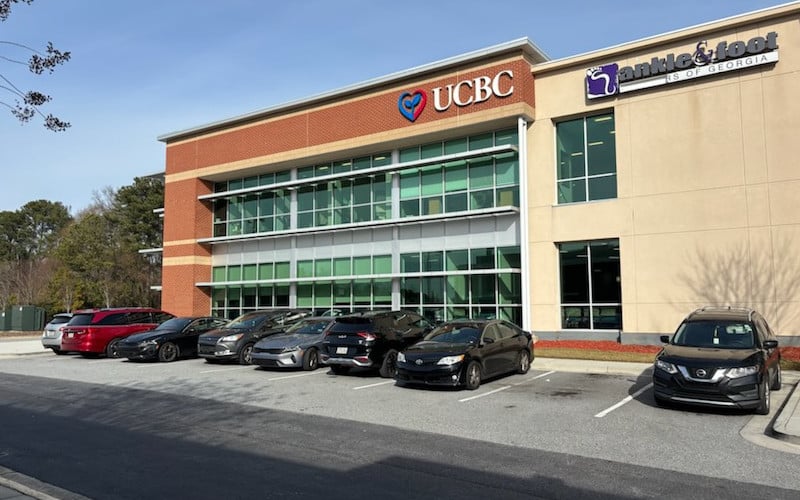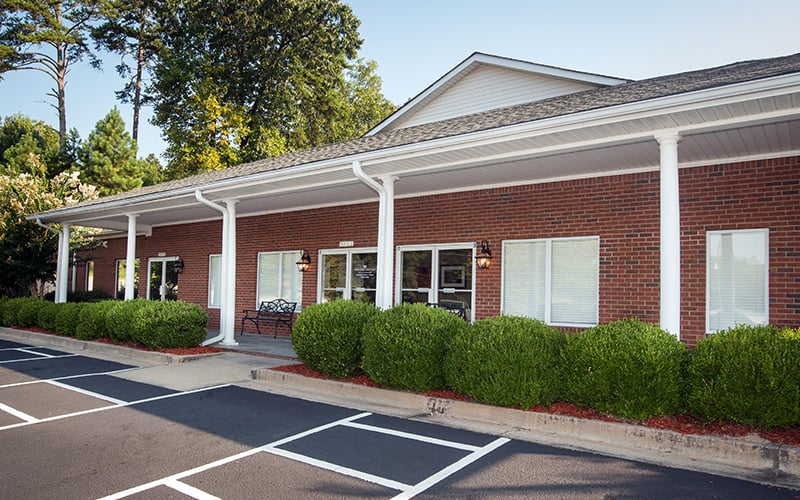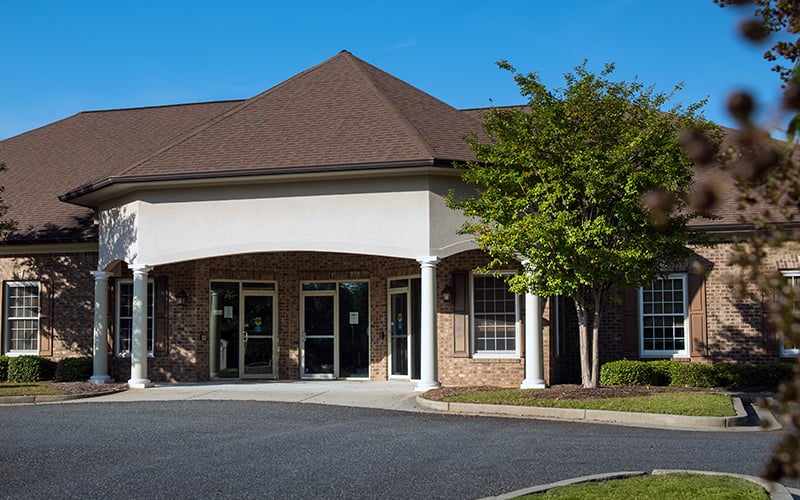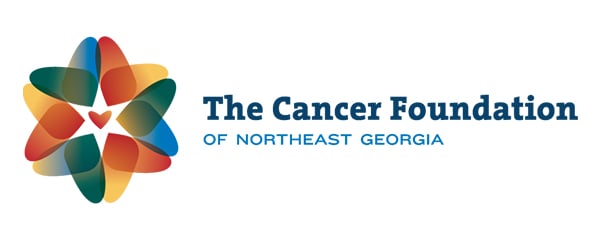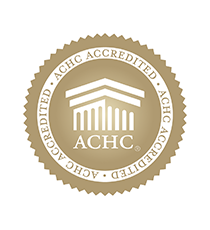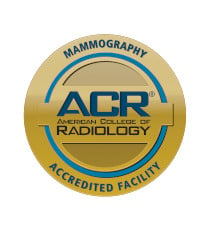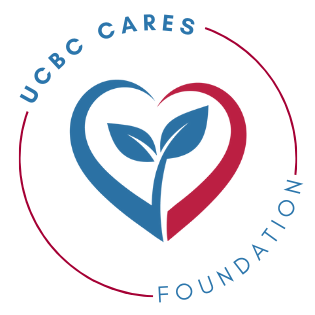Dr. Cody Gunn, a board-certified general surgeon and director of UCBC’s Breast Health Program, and Dr. Amanda Hathaway, a board-certified medical oncologist and hematologist serving UCBC’s Athens, Eatonton, and Toccoa locations, joined host Bruce Feinberg on a recent episode of WSB’s “The Weekly Check-up.” The October 1 episode kicked off the start of Breast Cancer Awareness Month with a discussion of advancements in the nature of cancer care at large through multidisciplinary care, advances in breast cancer treatment operationally and in clinical trials, UCBC’s Comprehensive Cancer Center and its Comprehensive Breast Health Program, and much more.
Both Dr. Gunn and Dr. Hathaway found themselves drawn to the treatment of breast cancer for different reasons. Originally planning to be an orthopedic surgeon, Dr. Gunn began a focus on breast surgery for cancer care after watching his own mother’s personal journey battling breast cancer. This became the catalyst for his efforts to create the Comprehensive Breast Health Program with UCBC, a process that was described by Dr. Gunn as “a 20-year journey.”
Dr. Hathaway discovered a draw toward oncology during her rotations, and specifically patients with breast cancer. Currently, she notes that as a general medical oncologist and hematologist, roughly 50% of her patient load is breast cancer. “I have a passion, not only for taking care of patients with breast cancer, but for getting them past that point where you’re working hard on getting the cure, and then to thriving after you have that cure. That’s where my passion is,” said Hathaway.
The doctors went on to explain how UCBC, with its focus on patient advancement and outcomes, created a truly comprehensive program to help breast cancer patients in every aspect of care by bringing together all the necessary specialists and services all onto one campus. Dr. Gunn went on to expound on this thought, saying “The difference [in the patient journey] is that their care is no longer all around town. The surgeon used to be in one office. They’d have their mammogram and their ultrasound in a different facility. The oncologist would be miles away and it would take several days in between to make all those visits happen. When UCBC brought our specialties together, now we’re all on one campus where I’ll be there, and if I need [medical oncology or radiation oncology] they’ll be there the same day. We have imaging the same day. We’ve seen people with a palpable mass that was concerning and they had their mammogram and biopsy the same day. And that alleviates so much of the anxiety of the disease itself. It’s part of the reason we tried to put all of this together.”
Agreeing with Dr. Gunn, Dr. Hathaway added “Having everything on the same campus means patients don’t have to wonder what the surgeon thinks or what the medical oncologist thinks and if those will align. Patients know that they have a plan and their providers are collaborating to determine the best plan together.”
The doctors went on to outline the extensive number of services that UCBC provides, outlining that medical oncology, radiation oncology, surgical oncology, breast care (including diagnostic testing, high-risk assessment, and surgery), primary care, gastroenterology, and colorectal all worked together for the betterment of patients. Additionally, they noted that oncology patients have access to social workers, palliative care, different emotional and well-being therapies, nurse navigators, and support groups.
Additionally, host Dr. Bruce Feinberg asked the doctors about current best practices for breast cancer prevention. The physicians noted that if you don’t have a family history of breast cancer, it is advisable to start screenings at age 40 and go once a year. However, one of the offerings of the Comprehensive Breast Health Program is its high-risk assessment clinic, which can calculate a woman’s lifetime risk for breast cancer.
One of the final discussion points was the individualization of cancer treatment as technology has advanced. The doctors noted that often, everyone’s plan of care is different due to the unique circumstances of their cancer and their environment. Cancer care, and breast cancer care especially, cannot have a one-size-fits-all approach. Dr. Hathaway summarized the discussion by saying “Your doctors are taking great care to look at your individual case and tailor a plan for you. That’s how we’re getting the best outcome for patients. When we stop treating all cancers the same, we’ve had better outcomes for those individuals.”
To schedule an appointment with an expert oncologist at University Cancer & Blood Center, visit universitycancer.com or call (706)-353-2990. To schedule an appointment with our Breast Health team, call (762)-356-4780.
